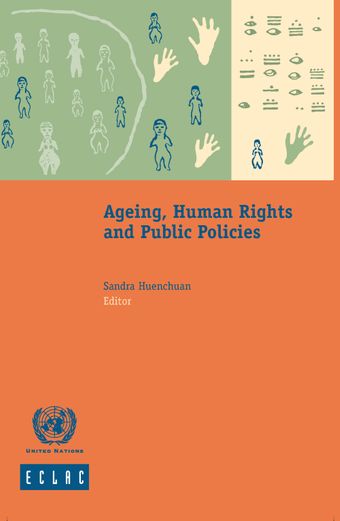Ageing in the context of a rights-based approach to development

- Author: United Nations
- Main Title: Ageing, Human Rights and Public Policies , pp 19-35
- Publication Date: September 2011
- DOI: https://doi.org/10.18356/a9008c54-en
- Language: English
At its thirty-first session (March 2006), ECLAC proposed that “a rights-based approach should be used in framing public policy. The civil, political, economic, social and cultural rights enshrined in binding national and international agreements should form the normative framework for development” (ECLAC, 2006). This perspective alters the rationale on which laws, policies and programmes are based, since the starting point is the existence not simply of persons with needs who require assistance, but of subjects with rights, and these rights impose obligations on the State and the rest of society (Abramovich and Courtis, 2006; OHCHR, 2004; ECLAC, 2006). The individual is therefore the central subject of development, and the guarantees enshrined in the universal system of human rights protection constitute the conceptual framework accepted by the international community and capable of providing a coherent set of principles and rules for guidance (Abramovich, 2004; ECLAC, 2006). This approach is also useful for defining the obligations that States must assume with regard to the economic, social, cultural, civil and political rights to be enforced as part of their long-term strategy.
-
From This Site
/content/books/9789210550796c009dcterms_title,dcterms_subject,pub_keyword-contentType:Journal -contentType:Contributor -contentType:Concept -contentType:Institution105



